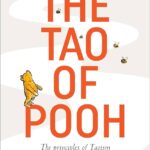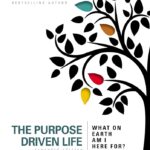Welcome to Thinkers Books, your gateway to the wisdom of the world’s most enlightening literature. Today, we delve into the realm of sleep with the riveting book ‘Why We Sleep’ by Matthew Walker. Spending around a third of our lives in slumber begs the question: Why is sleep so essential? Prepare for an illuminating journey into the world of dreams and sleep science.
Matthew Walker, a renowned neuroscientist and sleep expert, has dedicated years to researching this fascinating field. His groundbreaking work has revolutionised our understanding of sleep’s critical role in health and well-being. In ‘Why We Sleep’, Walker unravels the complex science behind rest, highlighting its profound effect on our emotional health, cognitive abilities, and longevity.
Starting with exploring how sleep evolved across different species, Walker emphasises its universality despite associated vulnerabilities, such as exposure to predators. He explains how our daily rhythms are dictated by light and darkness, which influence the production of melatonin, a chemical signal for sleep. The book also delves into the dire consequences of sleep deprivation and offers practical techniques for improving sleep quality.
Here are my Top 5 learning points from this transformative book:
- Sleep is Universal: This point emphasises that sleep isn’t a human-only phenomenon but is universal across the animal kingdom. Despite the vulnerability it brings (like exposure to predators), the fact that every animal sleeps indicates that evolution has preserved this state due to its essential benefits. It suggests that sleep serves vital functions that far outweigh its associated risks.
- The Role of Light: Our sleep-wake cycle, or circadian rhythm, is significantly influenced by light and darkness. Exposure to natural light during the day and evening at night helps regulate our body’s internal “clock.” The advent of artificial light, incredibly blue light from electronic devices, can disrupt these rhythms and negatively impact sleep quality. By managing our light exposure, we can better align our circadian rhythm and improve our sleep.
- Consequences of Sleep Deprivation: Chronic sleep deprivation can lead to numerous health problems, including cardiovascular disease, obesity, diabetes, weakened immune system, and mental health disorders like depression and anxiety. Lack of sleep can also impair cognitive functions such as memory, attention, and decision-making. It also increases the risk of accidents and errors at work and on the road.
- Importance of Good Sleep Hygiene: Good sleep hygiene involves practices and habits for good nighttime sleep quality and full daytime alertness. Some of Walker’s critical aspects of good sleep hygiene include maintaining a consistent sleep schedule, creating a comfortable sleep environment, limiting exposure to screens before bedtime, and carefully managing food and drink, particularly caffeine and alcohol.
- Sleep and Dreams: Walker explains that dreams, particularly during rapid eye movement (REM) sleep, play a crucial role in our emotional health and cognitive processes. For example, they contribute to memory consolidation, problem-solving, and creativity. REM sleep, where most dreaming occurs, also helps regulate our emotions, providing overnight therapy.
In essence, ‘Why We Sleep’ is a clarion call for recognising sleep as a critical pillar of health, on par with diet and exercise. Understanding the science behind sleep and utilising Walker’s practical tips can enhance our sleep quality and waking life.
‘Why We Sleep’ is a must-read for anyone interested in enhancing their wellbeing. It’s a wake-up call about the importance of sleep, backed by rigorous scientific research. Personally, this book was a revelation. It made me reevaluate my sleep habits and underscored the need for a societal shift in how we perceive and prioritise sleep.
As we conclude our exploration of ‘Why We Sleep’, I invite you to delve further into the world of insightful summaries offered by Thinkers Books. Remember, the world belongs to those who read. Let’s continue to value the power of knowledge and the importance of restful sleep in our lives. Until next time, stay curious, stay rested, and keep thinking!







